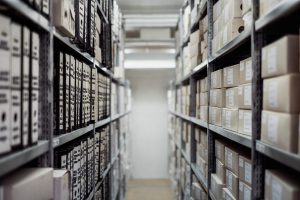Singapore is one of Asia’s most competitive economies. However, according to the Global Competitiveness Report released in September 2018, Singapore’s ranking slipped in innovation and sophistication. This doesn’t mean Singapore has taken a step back, it could mean that other countries have caught up and have become more innovative. Digital makeover is one of the features of the fourth industrial revolution. The use of technology in manufacturing and logistics has become vital. Warehouse apps have changed how companies keep track of stock in warehouses.

Integration of logistics
Although some companies have their warehouses, others use storage facilities run by other companies. These warehouses provide support to companies that do not have sufficient space to store their merchandise. They also come in handy for businesses that do not want to bear the associated costs that come with running a warehouse including labor resource challenges.
Warehouse apps help in ensuring there is direct communication between the warehouse and the office. Through the integration of all activities in the warehouse and the actions taken by the office, accurate information is shared at all time. This enables companies, particularly those that use warehouses run by other companies, to keep track of their stock through warehouse app providers like: https://orangekloud.com/business-solutions/warehouse-solutions/
Management with minimal human interference
Before the introduction of warehouse apps, warehousing and stock taking had to be done manually. Hundreds of employees were required, especially for large warehouses, to ensure that every transaction is recorded, and that the stock sold and what is left behind is accounted for. Human error was unavoidable, and this led to losses for businesses that could not identify where the mistake was made.
Cloud computing, big data, cybersecurity, and the Internet of Things are some of the features that will bring the fourth industrial revolution. Warehouse apps have been designed around some of these features. Business owners can analyze the information they receive from the warehouses from anywhere in the world. The data is stored in cloud to ensure no one interferes with it, and those authorized have easy access to the data. Automation is truly transforming how warehouses are managed. The Coca-Cola warehouse in Singapore is an example of how smart technology is revolutionizing storage.
Warehouses are more than storage facilities
Businesses are changing the way they run their operations. This change has been partly thanks to online stores which provide services like drop shipping. Some of the online businesses do not handle storage and transportation. These businesses attract the customers, send the information to the warehouse once a client purchases the product with payment information and delivery information. The interconnection between the shop, warehouse and shippers has been simplified because of the transparency made possible with the use of warehouse apps.
Singapore’s government encourages the proper use of land for higher productivity as it is a tiny, bustling city of only 721.5 km². Areas that have been zoned for industries and warehouses can be more productive through the adoption of smart technology. This will increase the demand for warehousing which in turn will contribute more to the economy. The success achieved through the use of warehouse apps will encourage end users to custom-build warehouses with the use of smart initiatives which will benefit relevant companies and the economy.